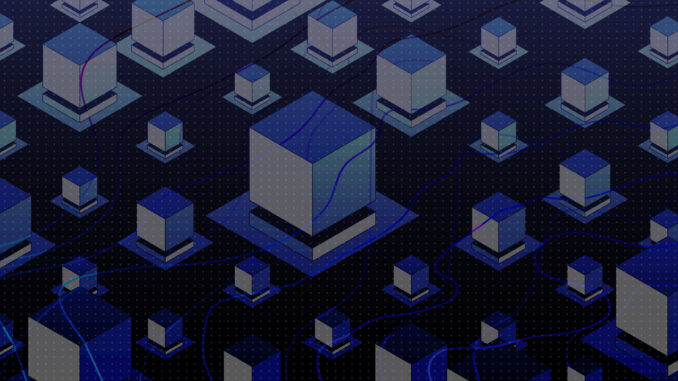
Blockchain technology is often associated with cryptocurrencies like Bitcoin, but its potential extends far beyond digital currencies. It is a decentralized and transparent digital ledger that records transactions and data across multiple computers or nodes. By understanding blockchain and its capabilities, we can explore its potential in various industries.
One of the most revolutionary and fascinating discoveries of recent times is blockchain technology. Blockchain, which was first presented as the underpinning technology for cryptocurrencies like Bitcoin, has developed past its initial uses and is now being investigated for its potential across other sectors. In this piece, we’ll debunk the myths surrounding blockchain technology and explain how it can reach its full potential.
Blockchain is fundamentally a distributed ledger that is decentralized and records transactions across several computers, or nodes. Blockchain’s openness, security, and immutability are what makes it so beautiful. The cryptographic algorithms and consensus procedures of the blockchain make it extremely hard to change or modify a transaction once it has been recorded there.
The capacity of blockchain technology to do away with the need for middlemen in transactions is one of its main benefits. In traditional systems, transactions are frequently validated and facilitated by dependable third parties like banks, brokers, or clearinghouses. On the other side, peer-to-peer transactions are made possible by blockchain, eliminating middlemen, and decreasing costs, delays, and potential failure spots. This has the potential to revolutionize sectors where intermediaries play a big part, such as finance, supply chain management, and real estate.
Blockchain technology has the potential to simplify financial operations including trade settlements, remittances, and cross-border payments. Blockchain can dramatically cut transaction fees and settlement times by enabling direct peer-to-peer transfers, making financial transactions more effective and available, especially for the unbanked population.
Managing the supply chain is another area where blockchain technology has enormous potential. Blockchain may improve traceability, lower fraud, and increase efficiency by offering a visible and unchangeable record of each transaction and movement of commodities. Businesses may streamline their supply chain procedures while reducing risks, giving customers more assurance about the items’ provenance and authenticity.
Real estate is another sector that blockchain technology has the potential to revolutionize. Property transactions sometimes entail a large number of middlemen, extensive paperwork, and a lack of transparency. By utilizing blockchain, property ownership data may be safely and openly kept on the network, lowering the risk of fraud and speeding up ownership transfers. Rent payments, property management, and escrow services may all be automated using smart contracts, self-executing agreements written on the blockchain.
Managing the supply chain is another area where blockchain technology has enormous potential. Blockchain may improve traceability, lower fraud, and increase efficiency by offering a visible and unchangeable record of each transaction and movement of commodities. Consumers can have more faith in the items’ provenance and authenticity, while companies can streamline their supply chain procedures.
Here’s a closer look at blockchain’s applications beyond cryptocurrency
Table of Contents
Supply Chain Management
Blockchain can revolutionize supply chain management by providing transparency and traceability. It enables the tracking of products from their origin to the final destination, ensuring authenticity and reducing fraud. With blockchain, stakeholders can verify the origin, quality, and movement of goods, improving efficiency and trust in the supply chain.
Healthcare
Blockchain technology can enhance data security, interoperability, and patient privacy in the healthcare industry. It can enable secure sharing of medical records among healthcare providers, ensuring accuracy and integrity. Additionally, blockchain can streamline clinical trials, track the provenance of drugs, and facilitate the secure sharing of medical research.
Voting Systems
Blockchain offers a secure and transparent platform for conducting elections. By using blockchain for voting systems, we can ensure the immutability and integrity of the voting process. It eliminates the risk of tampering with ballots and provides a decentralized and verifiable record of votes.
Intellectual Property Protection
Blockchain can help protect intellectual property rights by creating an immutable record of ownership and transactions. Artists, musicians, and content creators can use blockchain to establish proof of ownership and secure their digital assets from unauthorized use or plagiarism.
Financial Services
While blockchain is known for its association with cryptocurrencies, it has the potential to transform traditional financial services. Blockchain-based systems can facilitate faster and more secure cross-border transactions, reduce costs, and eliminate intermediaries. It also enables the creation of smart contracts, which are self-executing contracts that automatically enforce the terms agreed upon by the parties involved.
Identity Management
Blockchain can address challenges related to identity theft and data breaches by providing a secure and decentralized identity management system. Users can have control over their data and selectively share it with trusted entities, reducing the risk of data misuse or unauthorized access.
Energy Trading and Grid Management
Blockchain can enable peer-to-peer energy trading, where individuals can directly exchange energy without intermediaries. It can also facilitate the management of decentralized energy grids by securely recording transactions and optimizing energy distribution.
Real Estate
Blockchain technology has the potential to streamline real estate transactions by digitizing property records and automating processes. It can reduce fraud, enhance transparency in property ownership, and enable faster and more efficient property transfers.
Supply Chain Finance
Blockchain-based supply chain finance platforms can improve access to financing for small and medium-sized enterprises (SMEs). By providing transparency and traceability in supply chains, lenders can assess risks and offer financing solutions based on verified data.
Governance and Public Services
Blockchain can enhance transparency, accountability, and efficiency in government operations. It can be used for secure record-keeping, identity management, and the delivery of public services. Blockchain-based systems can minimize corruption, ensure the integrity of public records, and enable more participatory governance.
As blockchain technology continues to evolve, its potential applications are expanding across industries. Its decentralized nature, immutability, and transparency offer opportunities for innovation, efficiency, and trust. Understanding the capabilities of blockchain beyond cryptocurrencies is crucial for organizations and individuals to leverage its potential and drive meaningful change in various sectors.

Leave a Reply